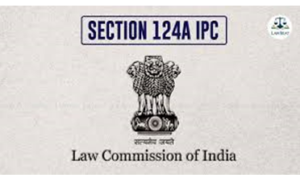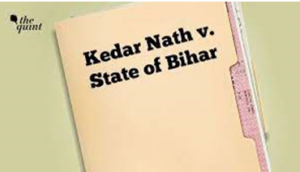
Sedition law more vulnerable to abuse than ever.

What is Sedition Law?
Sedition Law in India is defined by Section 124 A of the Indian Penal Code which clearly states that any person who “brings or attempts to bring into hatred or contempt or excites, or attempts to excite disaffection” towards the Government of India which is the “Government established by law” may face one of the following punishments:
- They may be imprisoned for life, to which a fine imposition may be added, or
- They may be imprisoned for a period of three years with fine, or a fine imposition may be added
The ultimate punishment for inciting any negative emotions or thought against the Government of India is imprisonment either with fine or with addition of fine.
An important distinction to be noted lies in the fact that any point or opinions put across as disapproval of the methods or actions of the Government in an attempt to get them to rectify or alter the measures they have implemented through lawful means, so long as there is no attempt to excite any hatred, contempt or disaffection against the government, does not constitute or amount to an offence committed under Section 124 A.

This may include comments against the administrative or other actions of the government, but again the main element that constitutes an offence under this section, is the existence of an intention to create a disaffection towards the Government of India. The term “disaffection” basically means any disloyalty or any feelings of enmity towards the government. The Law of Sedition, implemented to protect the government’s authority from potentially being undermined by the general public at large, has always been greatly controversial world-wide.
The Law Commission on Sedition Law:

In a recent event the rather unexpected developments that took place were described as “a historic opportunity to right a wrong” which was missed and not used in the way most would have thought it to be.
Though may firmly believed that the Law Commission of India would be defending the position for a repeal of the Law of Sedition or at least suggest a redefinition of its meaning and punishment, made quite the opposite stand, taking many by surprise.
The commission instead, advocated for the continued inclusion of the Law of Sedition in the Indian Penal Code, and even recommended that the meaning and punishment of the law should be redefined in the sense that it should be further enhanced.
The retention of this law suggests that the government would rather focus their efforts on silencing the voices that echo with dissent rather than take responsibility for matters where they have fallen short or take this opportunity to fix the Sedition Law to which even the Supreme Court has shown, on various occasions, a well-known discomfort. The general opinion on the move by the Law Commission to retain the Sedition Law is “disappointment.”
According to a senior counsel the commission attempted to introduce a rather vague and ambiguous concept of ‘tendency’ leaving the law all the more open for abuse by the authorities. The Law of Sedition finds its roots in ancient cultures, from the time of Kings and Queens where Royalty was the Supreme power of the land, and so much as speaking against royalty was an act or disloyalty against the land and God itself. A law descending from the time of Kings and Queens into the modern world could be considered rather primitive and unfit to compliment the notions of democracy.
Kedar Nath Singh v State of Bihar:

In 1953, Kedar Nath Singh presented a speech in which he accused the Indian National Congress as “Goondas who sucked the blood of the mazdoor and kisan.” He was subsequently arrested under section 124 A (the law of Sedition.)
In the case of the offence of sedition by Kedar Nath Singh a learned five-judge bench of the Supreme Court of India was tasked with the duty of deciding the constitutionality of the law of sedition which has been used a tool for curbing those conceived to be in dissent with those in power for over many years now.
Unfortunately, in Kedar Nath Singh v. State of Bihar, the Supreme Court up-held the validity of the constitutionality of the provisions of the Indian Penal Code that defined the punishments for the offence of sedition. In the sixty years since the Kedar Nath Ruling the Supreme Court has since made a clear distinction between what is conceived as discussion and what is conceived as incitement.







